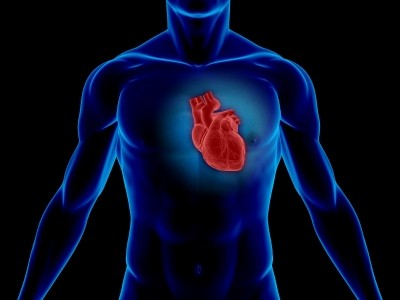Selenium may ease post-exercise oxidative stress in overweight people
A daily dose of the mineral was associated with significant decreases in levels of lipid hydroperoxides after exercise – lipid hydroperoxides are intermediates in lipid peroxidation, which is a well known indicator of oxidative damage in cell membranes.
“This study has highlighted a potential benefit of selenium in reducing lipid hydroperoxide levels post-exercise in overweight individuals,” wrote the researchers in Obesity.
“Given that oxidant stress is a predictor of coronary events, it is imperative to better understand oxidant stress-related responses to lifestyle factors (in particular ‘high-risk’ population groups) and potential antioxidant therapy.”
The mineral
Selenium is an essential macronutrient, and is considered to be an antioxidant. High levels of selenium have been inversely associated with risk of developing several cancers, including bladder, prostate and thryroid.
The trace element occurs naturally in the soil and is absorbed by plants and crops, from where it enters the human food chain - either directly or through consumption of meat and other products from grazing animals.
The mineral is included in between 50 and 100 different proteins in the body, with multifarious roles including building heart muscles and healthy sperm. However, cancer prevention remains one of the major benefits of selenium, and it is the only mineral that qualifies for a Food and Drug Administration (FDA)-approved qualified health claim for general cancer reduction incidence.
Sports nutrition, too?
The new study – reportedly the first of its kind – indicates that selenium may also be a useful antioxidant therapy for exercising overweight people.
Researchers from the University of Bedfordshire and Luton and Dunstable Hospital in England recruited 10 normal weight and 10 overweight people to participate in their randomized double-blind supplementation study.
Participants received a daily dose of 200 micrograms of sodium selenite for three weeks or three weeks of placebo. At the end of three weeks, both groups received placebo for three weeks and then crossed over to the other group.
Results showed that selenium supplements were associated with a 0.25 micromole per liter decrease in lipid hydroperoxide levels, compared to placebo, in the overweight participants immediately following exercise.
On the other hand, no changes in other markers of oxidative stress were observed between the placebo and selenium groups.
Overweight versus lean
Commenting on the discrepancy between the overweight and normal weight participants, the researchers note that selenium plays a critical role in the body’s antioxidant defenses, particularly in antioxidant enzymes, such as glutathione (GSH). This enzyme is responsible for removing various oxidizing species from the cell, such as hydrogen peroxide.
The researchers note that the overweight participants had low selenium levels at the start of the study and this may be why they expressed a “compromised antioxidant system and raised lipid hydroperoxide levels at rest and after high-intensity exercise”.
“Selenium supplementation in the overweight group was effective at increasing plasma selenium levels to near recommended levels which in turn decreased lipid hydroperoxide responses at rest and after high-intensity exercise.
“The lack of Se supplementation effect on lipid hydroperoxide levels in the normal weight group maybe explained by prior sufficient levels of selenium to support maximal expression of GSH-Px activity,” they added.
Importance of selenium
A recent review paper by Joyce McCann and Bruce Ames from the Nutrition and Metabolism Center at Children’s Hospital Oakland Research Institute in Oakland (CHORI) indicated that moderate deficiency in selenium may have long-term detrimental effects (FASEB Journal, 2011, Vol. 25, pp. 1793-1814).
Paul Willis, chief executive officer of Cypress Systems, a Fresno-based biotechnology company and producer of high selenium yeast, said the review should “change our current thinking as it examines moderate selenium and vitamin K deficiency to show how damage accumulates over time as a result of vitamin and mineral loss, leading to age-related diseases”.
Dr. Mark Whitacre, the company’s chief operating officer and chief science officer said the review was the best he had seen in my many years in this field.
“It supports the need for selenium supplementation even at modest deficiencies,” added Whitacre.
Europe versus America
Selenium levels have been falling in Europe since the EU imposed levies on wheat imports from the US, where soil selenium levels are high.
As a result, average intake of selenium in the UK has fallen from 60 to 34 micrograms per day, leading to calls from some to enrich soil and fertilizers with selenium to boost public consumption. Selenium-enriched fertilizers are used in Finland.
The European recommended daily intake (RDI) is 65 micrograms. The recommended EC Tolerable Upper Intake Level for selenium is 300 micrograms per day.
Source: Obesity
Published online ahead of print, doi: 10.1038/oby.2011.83
“Selenium Supplementation and Exercise: Effect on Oxidant Stress in Overweight Adults”
Authors: L.A. Savory, C.J. Kerr, P. Whiting, N. Finer, J. McEneny, T. Ashton















